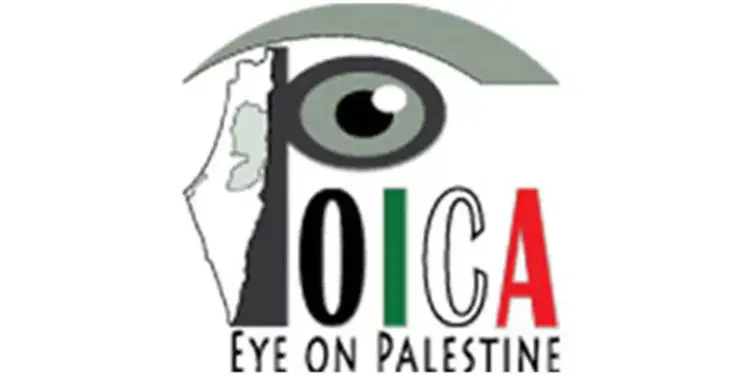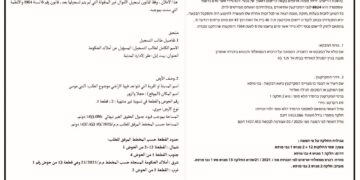Executive Summary
The winter session of Israel’s Knesset opened amidst heightened tensions, marked by a sharp government attack on the judiciary. Prime Minister Benjamin Netanyahu, in his opening speech, directly criticized the judiciary and defended Israel’s ongoing military operations in Gaza, restating his pledge to “eliminate Hamas.” Opposition leader Yair Lapid accused Netanyahu of transforming Israel into a “subordinate state of Washington,” highlighting deep political divisions at the national level.
This session also coincides with a critical phase in Israel’s de facto annexation strategy in the occupied West Bank. Right-wing factions are actively weighting legislation as both a territorial and political tool, advancing bills aimed at imposing Israeli sovereignty over settlements and other strategically significant areas. These legislative efforts intersect with broader political contests, as the government faces fragmentation following the departure of ultra-Orthodox parties over recruitment disputes, leaving Netanyahu “ for the first time since the formation of the current coalition” without a stable parliamentary majority. The dual dimensions of annexation politics, territorial expansion and internal power consolidation, reflect a convergence of ideological radicalism and structural constraints.
While annexation dominates public speech, its practical implementation remains limited by international pressure, economic risks, and the fragility of the governing coalition. Legislative maneuvers further intensify tensions, as they risk bypassing international sanctions directed at extremist settler activity, underscoring the complex relationship between domestic politics, security imperatives, and geopolitical considerations.
In Context: Political Fragmentation and Strategic Uncertainty
The Knesset returns to session under conditions of severe political fragility. The parting of Shas and United Torah Judaism (UTJ) from government positions over the ultra-Orthodox recruitment law has left the coalition-opposition balance evenly split at 60–60. This deadlock prevents the passage of consequential legislation, including sovereignty bills, without Haredi reintegration into the government.
Amid this vacuum, far-right factions are leveraging annexation as a symbolic and mobilizing tool, pressing the government to formalize the absorption of settlements and key territories into Israel proper. Annexation is presented as both a domestic political instrument to satisfy nationalist constituencies and as a strategic preemptive response to international recognition of Palestinian statehood.
Legislative Push for Annexation: Bills, Actors, and Ideological Goals
Several bills have been tabled “again” with the explicit purpose of extending Israeli law and sovereignty across the West Bank, reflecting both ideological ambition and political intent:
- Full Annexation Bills: Limor Son Har-Melech (Otzma Yehudit) and Avi Maoz (Noam) propose extending Israeli civil jurisdiction to all Jewish settlements in the West Bank, declaring them inseparable from the sovereign State of Israel. These proposals frame annexation as a non-negotiable ideological imperative, paving the way for a system that entrenches settler dominance and institutionalizes the displacement of Palestinians.
- Targeted Annexation Bills: Avigdor Liberman (Yisrael Beytenu) has advanced legislation specifically targeting the settlement of Ma’ale Adumim, treating it as the first stage of broader absorption plans. Bezalel Smotrich continues to advocate annexing up to 82% of the West Bank, framing this as a countermeasure to Western recognition of a Palestinian state.
While the Ministerial Committee for Legislation has scheduled discussions of these bills, Netanyahu’s political caution and explicit hard opposition from the United States are likely to delay any formal passage. As a result, these bills function less as immediate legal instruments and more as strategic political messaging to the right-wing voters.
U.S. Opposition and Netanyahu’s Strategic Calculus
Efforts to advance annexation face significant international and domestic constraints.
- S. Position: President Donald Trump has explicitly opposed West Bank annexation, placing Israel’s territorial ambitions under close diplomatic surveillance and weaving potential repercussions for unilateral moves.
- Netanyahu’s Dilemma: Pushing forward with annexation carries substantial risks, including deepening the ruptures in relations with Washington, credit downgrades, and even regional escalation. At the same time, failing to act risks alienating right-wing hardliners within his government, including Itamar Ben-Gvir and Bezalel Smotrich, who view annexation as one of the core ideological objectives of their joining the coalition in the first place.
- Coalition Dynamics: Critics within Netanyahu’s own coalition have accused him of political cowardice, indicating the tact of the thin line he must maintain between the coalition ideological allies and amplifying international pressures. As a result, the annexation narrative has increasingly become a tool for mobilizing the voters ahead of anticipated elections, or even if held at the designated time coming 27 October 2026, with legislative proposals functioning more as performative showing than as immediately actionable policies.
Secondary Agenda: Circumventing International Sanctions through Domestic Legislation
The legislative bill context:
In line with its annexation efforts, the Israeli Ministerial Committee for Legislation is reviewing a bill introduced by Otzma Yehudit that seeks to compel Israeli banks to continue servicing sanctioned Israeli settlers. The bill prohibits financial institutions from denying services to Israeli individuals targeted by U.S. or EU sanctions for political reasons, unless Israeli authorities expressly declare that such compliance would constitute a legal violation inside Israel as well. Which it did not.
The Economic Concerns and Political Function of the bill:
Economic policymakers, including the Bank of Israel and senior government advisors, have warned that enacting this legislation could expose Israel to grave economic consequences, including; exclusion from the SWIFT financial system, and curbs on access to foreign currency, and potential downgrades to Israel’s sovereign credit rating. The professional consensus is that the bill carries substantial systemic risk while serving only a narrow group of extremist settlers.
On the other hand, analysts widely interpret the initiative as an ideologically driven attempt to safeguard hardline voters and flake the international enforcement mechanisms under the cover of domestic law.
In effect, the bill exemplifies the hardliners weaponization of legislation for political Patronage and protection of their voting base, while minimizing or even dismissing the broader national economic and diplomatic costs and ramifications.
Conclusion
The 2025 Knesset winter session reveals that annexation has shifted from a purely territorial project to a central axis of political maneuvering, ideological prompting, and electoral platform. Far-right factions continue to advance bills asserting sovereignty over the West Bank, using legislation as a vehicle to reaffirm ideological commitments and mobilize their constituencies. Yet, despite the rhetorical escalation, the practical implementation of annexation remains constrained by international opposition, internal coalition instability, and serious economic warnings.
These dynamics highlight three core realities: first, structural limits make near-term annexation unlikely; second, the legislation serves primarily as a symbolic instrument rather than an executable policy; and third, the performative nature of these bills normalizes annexation discourse while sidestepping immediate international repercussions. Taken together, the session provides a revealing window into how ideological radicalism is translated into legislative theater, reflecting the broader pressures and calculations shaping; even dictating Israel’s ongoing policies in the occupied territories.
Prepared by:
The Applied Research Institute – Jerusalem













